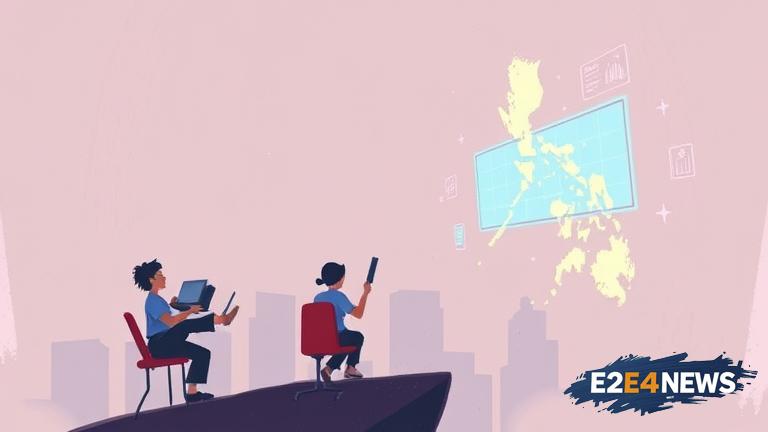The Philippines has made significant strides in its digitalization efforts, with the government and private sector investing heavily in digital infrastructure and technologies. However, the education sector is still grappling with the challenges of regulating the use of AI in schools. Despite the growing importance of AI in education, there is a lack of clear guidelines and rules on its use, leaving educators and students uncertain about its benefits and risks. The use of AI in education has the potential to improve student outcomes, increase efficiency, and enhance the overall learning experience. However, it also raises concerns about bias, job displacement, and the potential for AI to exacerbate existing inequalities. The Department of Education (DepEd) has acknowledged the need for clear guidelines on AI use in schools, but so far, no comprehensive framework has been put in place. This lack of regulation has led to a patchwork of different approaches to AI use in schools, with some institutions embracing it wholeheartedly, while others are more cautious. The private sector has been at the forefront of AI adoption in education, with many companies offering AI-powered learning platforms and tools. However, the lack of clear guidelines has made it difficult for educators to navigate the complex landscape of AI-powered education. The use of AI in education is not without its challenges, and educators are grappling with issues such as data privacy, algorithmic bias, and the potential for AI to displace human teachers. Despite these challenges, many educators believe that AI has the potential to revolutionize the education sector, making it more efficient, effective, and personalized. The government has recognized the importance of AI in education and has launched initiatives to promote its adoption, including the development of AI-powered learning platforms and the provision of training for educators. However, more needs to be done to address the regulatory vacuum and ensure that AI is used in a way that benefits all students. The Philippines is not alone in grappling with the challenges of AI regulation in education, and many countries are facing similar issues. The lack of clear guidelines on AI use in education is a global problem, and it will require international cooperation and collaboration to develop effective solutions. The use of AI in education has the potential to be a game-changer, but it requires careful planning, regulation, and oversight to ensure that it benefits all students. The Philippines has the opportunity to be at the forefront of AI adoption in education, but it must first address the regulatory challenges and develop clear guidelines on its use. The education sector is critical to the country’s economic development, and the effective use of AI has the potential to drive growth and innovation. The government and private sector must work together to develop a comprehensive framework for AI use in education, one that balances the benefits of AI with the need to protect students and educators. The development of clear guidelines on AI use in education will require a collaborative effort, involving educators, policymakers, and industry experts. It will also require a nuanced understanding of the complex issues surrounding AI adoption in education, including data privacy, algorithmic bias, and job displacement. The Philippines has the potential to be a leader in AI adoption in education, but it must first develop a clear and comprehensive framework for its use. This will require careful planning, regulation, and oversight, as well as a commitment to protecting the rights and interests of students and educators. The use of AI in education is a complex issue, and it will require a multifaceted approach to address the challenges and opportunities it presents. The government and private sector must work together to develop a framework that promotes the effective use of AI in education, while also protecting the rights and interests of students and educators. The Philippines is at a critical juncture in its digital transformation, and the effective use of AI in education will be critical to its success. The development of clear guidelines on AI use in education will be a key factor in determining the country’s ability to harness the benefits of AI and drive growth and innovation.
